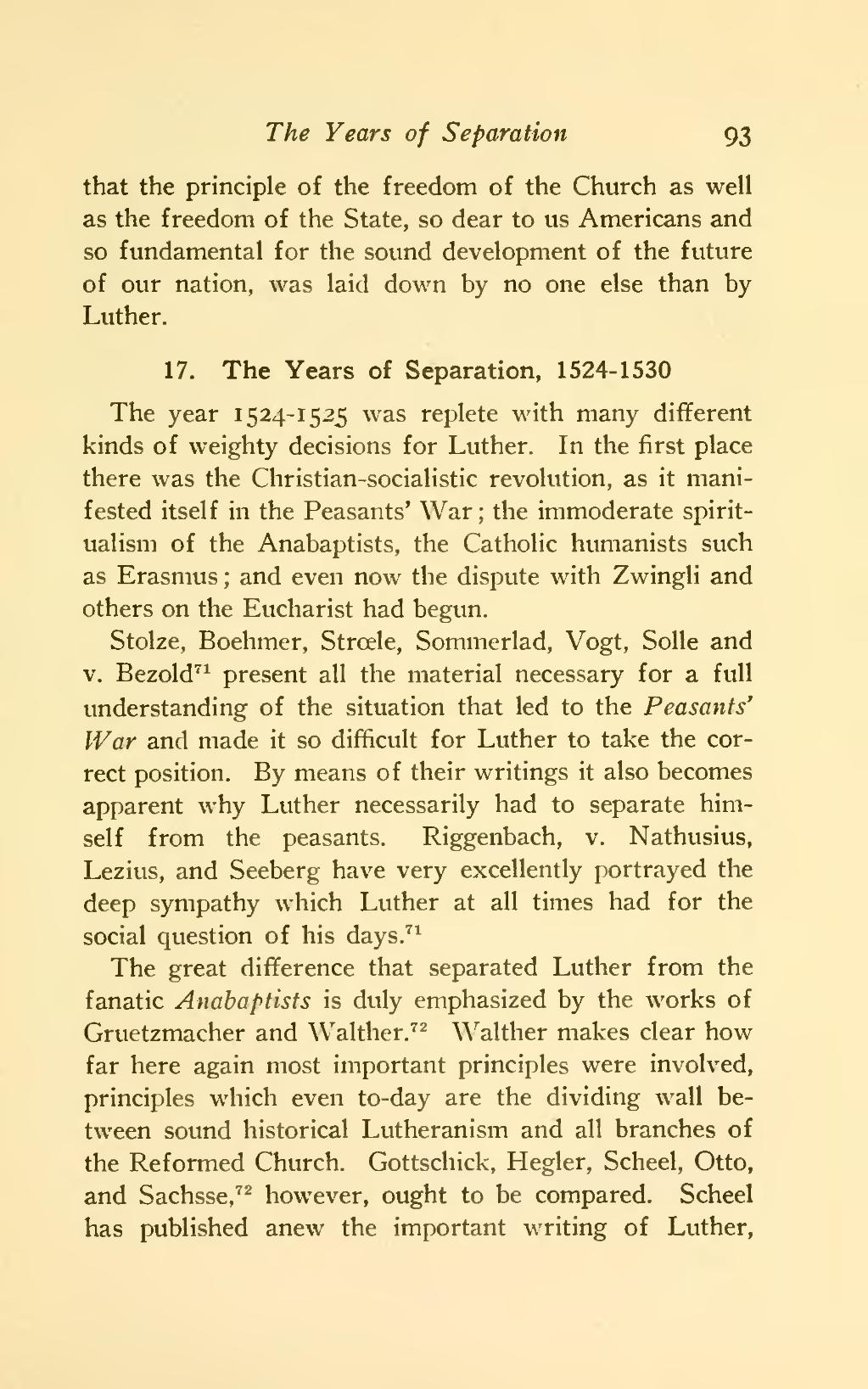that the principle of the freedom of the Church as well as the freedom of the State, so dear to us Americans and so fundamental for the sound development of the future of our nation, was laid down by no one else than by Luther.
17. The Years of Separation, 1524-1530
The year 1524-1525 was replete with many different kinds of weighty decisions for Luther. In the first place there was the Christian-socialistic revolution, as it manifested itself in the Peasants' War; the immoderate spiritualism of the Anabaptists, the Catholic humanists such as Erasmus; and even now the dispute with Zwingli and others on the Eucharist had begun.
Stolze, Boehmer, Strœle, Sommerlad, Vogt, Solle and V. Bezold71 present all the material necessary for a full understanding of the situation that led to the Peasants' War and made it so difficult for Luther to take the correct position. By means of their writings it also becomes apparent why Luther necessarily had to separate himself from the peasants. Riggenbach, v. Nathusius, Lezius, and Seeberg have very excellently portrayed the deep sympathy which Luther at all times had for the social question of his days.71
The great difference that separated Luther from the fanatic Anabaptists is duly emphasized by the works of Gruetzmacher and Walther.72 Walther makes clear how far here again most important principles were involved, principles which even to-day are the dividing wall between sound historical Lutheranism and all branches of the Reformed Church. Gottschick, Hegler, Scheel, Otto, and Sachsse,72 however, ought to be compared. Scheel has published anew the important writing of Luther,
